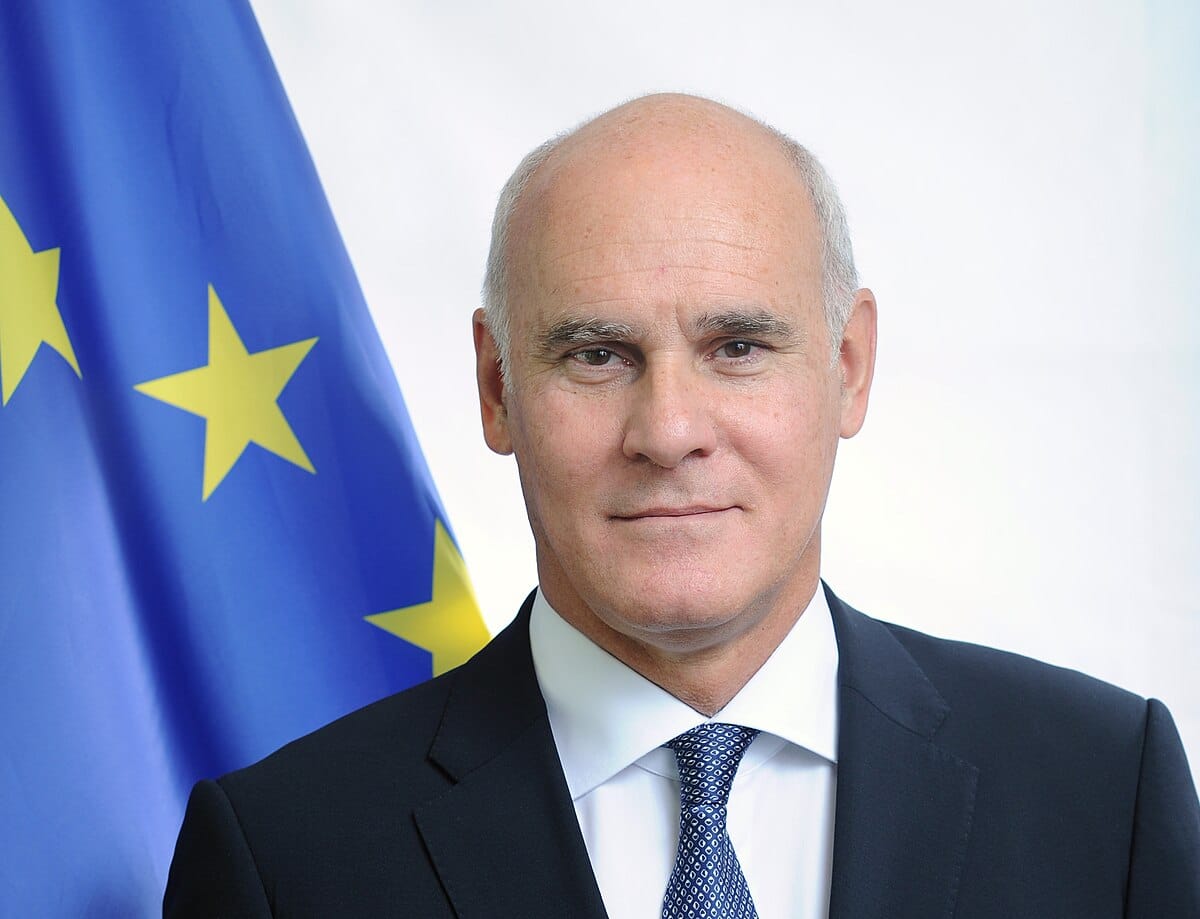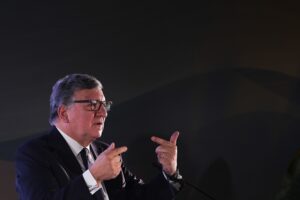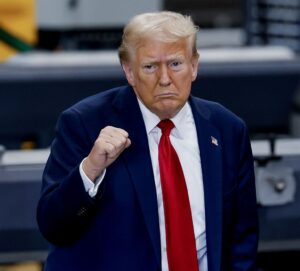“Trump is trying to divide UK from Europe”
A senior European diplomat and Portuguese national who has held posts as ambassador in the United States and the United Kingdom has highlighted a chilling agenda within the tariffs announced on Wednesday by US president Donald Trump.
João Vale de Almeida, who spent almost nine years living and working in the United States, explains that by setting different tariff levels between countries that have previously been ‘friends’ and trading partners, there is the risk of alienation; the risk of countries working against each other, in order to remain competitive.
As such, the UK – escaping with only the 10% baseline tariffs – is ‘ahead of the game’ vis-a-vis the European bloc, saddled with twice that amount. Just as there have been encouraging signs of a rapprochement post-Brexit, these tariffs could bring a new wedge.
“By giving more favourable treatment to the UK, it’s also a message to us, to try to divide us,” Vale de Almeida tells Lusa, explaining the context:
Since the British Labour government took office in July, Prime Minister Keir Starmer has been making a clear effort to bring the UK closer to the European Union. Cooperation has intensified following the US announcement to divest from European security. A first UK-EU summit is scheduled for next month (May 19) in London, favoured, according to Vale de Almeida, by the “quality of our relationship, which has improved enormously”.
“I think there’s a chance to make clear progress in the area of security and defence at full speed, but at the same time, in the economic relationship, there are some aspects that could be improved in the area of energy, in the area of youth mobility, in the area of climate emissions management,” he tells Lusa.
But there remains the risk that the Americans will attempt to “divide and rule between the British and the Europeans”, possibly by offering a trade agreement incompatible with EU rules.
“We have to be very skillful on both sides”, warned the diplomat. “Mr Starmer must not be too easily carried away by the “Trumpian” enchantment. And we must realise that a good relationship between Starmer and Trump is also good for us. It can be useful.
“If we manage this trilateral relationship intelligently, we can move forward positively,” he said.
João Vale de Almeida is currently in London to present his book “The Divorce of Nations”, due to be published in Portuguese in October.

In the book, he discusses his 40 years of experience working for the EU, during which he held a number of senior positions, including chief of staff to the president of the European Commission, José Manuel Durão Barroso.
What began on April 2 in many ways did not come as ‘a surprise’, but it is, in his eyes, the start of “a fragmentation of the global order, a tension in economic, commercial and political relations between states, not from a perspective of cooperation to find common solutions to common problems, but from a logic of competition, of power for power’s sake, of power for the sake of the powerful, of zones of influence, which is the opposite of everything we have tried to build, certainly since the Second World War, and very particularly since the end of the Cold War.”
With so much moving at breakneck speed this week, Canada’s prime minister Mark Carney, a former governor of the Bank of England and himself facing looming election, has declared that Canada has already initiated discussions with European leaders and trade officials in an attempt to pivot trading relationships away from the US in the pursuit of “free and equitable” trade relations. “If the US no longer wants to lead, Canada will”, he told a press conference in which he outlined retaliatory measures to what he described as President Trumps “unjustified, unwarranted” tariffs.
Source material: LUSA/ Guardian




















